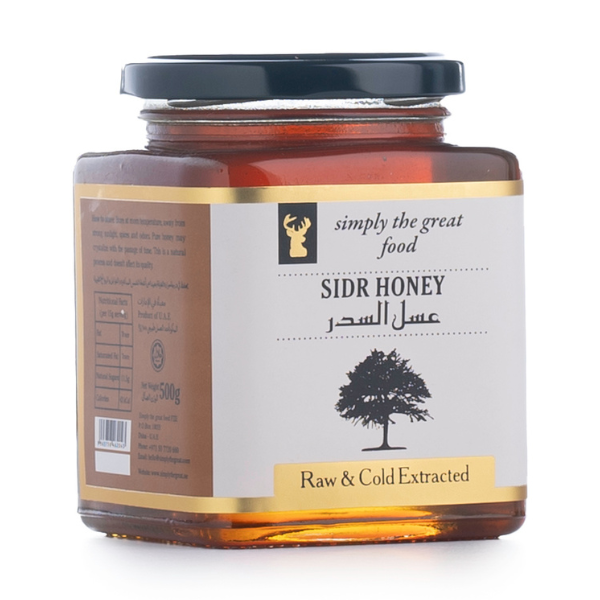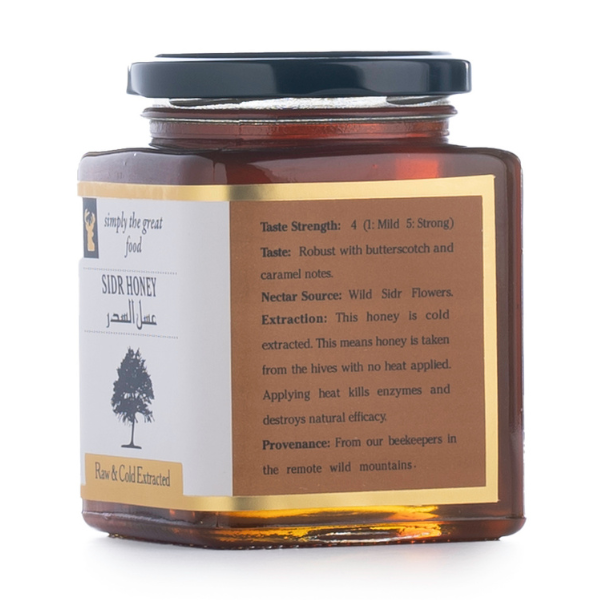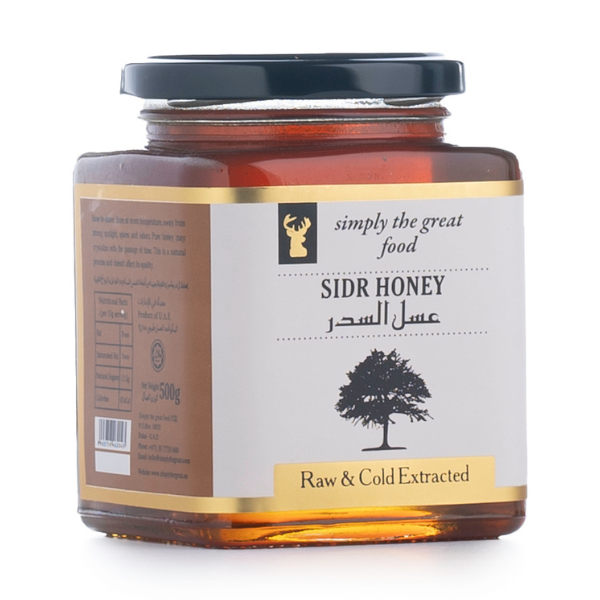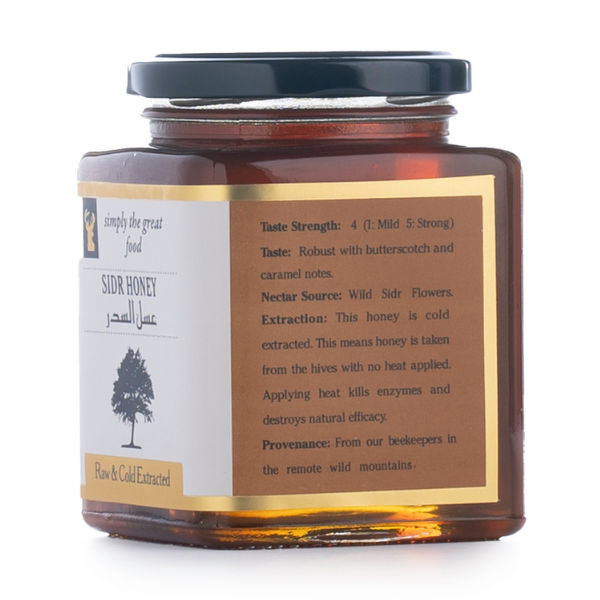Raw & Cold-Extracted | عسل مستخرج صافى
Sidr Honey عسل السدر
Couldn't load pickup availability
NECTAR SOURCE: Wild Sidr Flowers only.
CONSISTENCY: Smooth, viscous, rich and moderately thick.
COLOUR: Medium to dark amber.
TASTE: Robust with butterscotch & caramel notes.
PROPERTIES: Lowers bad cholesterol, strengthens immune system, good for athletes, elderly and pregnant women for its high mineral content.
نحن نجني أجود أنواع عسل السدر العضوي من أكبر وأقدم غابات السدر الموجودة في جبال الهيمالايا الغربية
عسل السدر خام ومُستخلص بالطريقة الباردة. بمعنى أننا لا نستخدم أي حرارة أو تصفية للعسل. عسل السدر لدينا يحتوي على المعادن والفيتامينات والإنزيمات الفعّالة للحفاظ على فوائده الطبيّة
The Sidr tree is considered sacred and has been used as a natural medicine for centuries. The real Sidr Honey is also rare. It is harvested once a year in November.
The taste of Sidr Honey is considered to be a luxury and it is said to be rich and unforgettable. People who have tried Sidr Honey are said to be “spoiled” by the experience. As raw and cold-extracted, Sidr Honey holds a high nutritious value.
If you love honey (and believe that honey is also a medicine) then you will love Organic Sidr Honey. It is slightly expensive compared to the processed, treated varieties that have been de-natured and widely available in the market. Our honey is raw and cold-extracted. This means that honey is taken from the hives with no heat applied. Applying heat makes honey runnier and kills off the good enzymes.
Once extracted, honey is not filtered using extra thick mesh wire. No industrial process is used for honey filtration.We use a special very old fashioned bottler to place the thick, candying honey into sterilised glass jars. This way, the honey stays as natural as we can get it. 
Generally, all raw honey is slightly acidic in nature (pH ranging from 4.0 to 6.0) however, Organic Sidr (Beri) Honey is an exception. It is has a pH value of 7.1 - 7.4 which is very close to human blood pH value (7.3). This means, it takes a matter of seconds to dissolve in our bloodstream, providing an efficient source of high quality energy, minerals and vitamins. This medical grade honey is popular amongst Olympic level athletes, consumed before high intensity work outs.
There is no use of pesticides in the surrounding areas so please be assured that this honey has come from the highest quality of organic nectar of the Sidr Tree's blossom.
Our beekeepers are trained and certified in the art of cold-extraction of honey to EU Standards.
Why we can not sell our honey cheaper?
- We do not mix this honey with other cheap ingredients in order to bulk up the honey. This is pure honey. There are no additional ingredients.
- We do not heat our honey in order to extract it more easily. Yes, we spend more time and energy manually extracting the honey- because we want to keep our honey raw with those amazing health benefits.
- We do not filter our honey. So this honey has natural bee pollen, micro pieces of propolis and bee wax, all of which benefit your health.
- We do not use our bees for commercial pollination. Our bee farm is located in a wild place, so our honey does not have any pesticides or herbicides or other harmful chemicals.
- Any real beekeeper will tell you how much work is required with bees to get each jar of honey. If you have bees, then you just work, work and work.
- We do not use any chemicals in order kill pests found in the hives, nor do we use chemicals in the winter time in order to help the bees survive until spring. If you do your research you will find that 90% of beekeepers use chemicals on bees.




